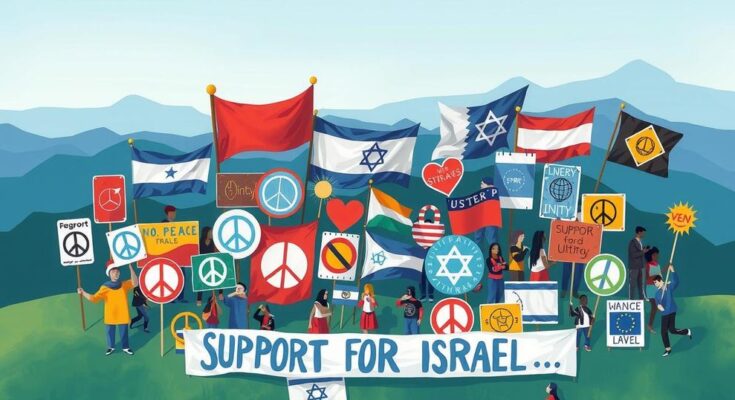Laurie Cardoza-Moore criticizes Tucker Carlson for his interview with Qatar’s Prime Minister, alleging a shift toward antisemitism and alignment with controversial nations. She warns that Carlson’s platforming of views related to Qatar’s interests might indicate troubling affiliations, questioning his integrity in relation to the Muslim Brotherhood.
Laurie Cardoza-Moore, a prominent pro-Israel activist and evangelical leader, has publicly criticized Tucker Carlson for his recent commentary regarding Qatar and Israel. She expresses her disagreement with Carlson’s stance, which she perceives as shifting dangerously toward antisemitic sentiments. Cardoza-Moore is the founder of Proclaiming Justice to the Nations (PJTN) and voiced her concerns following Carlson’s interview with Qatar’s Prime Minister, Sheikh Mohammed bin Abdulrahman Al Thani.
In this interview, the Prime Minister raised alarms about the potential consequences of attacking Iran’s nuclear facilities, stating that such an action could devastate the Gulf’s water supply, thereby harming Qatar, the UAE, and Kuwait. He contended that this scenario could lead to catastrophic consequences, leaving the Gulf with “no water, no fish, nothing… no life,” and advocated for diplomatic means instead of military intervention to avert disaster.
Cardoza-Moore responded to Carlson’s comments with disapproval, asserting that promoting these views on his platform might cater to Qatari interests. She voiced her concerns, questioning if Carlson had effectively “sold his soul to the Muslim Brotherhood” and accused him of aligning himself with Qatar, a nation that she describes as “one of the world’s biggest sponsors of Islamist terrorism.”
The criticisms from Laurie Cardoza-Moore highlight significant concerns regarding Tucker Carlson’s recent statements and his interview with Qatar’s Prime Minister. The ongoing debate emphasizes the complexities surrounding international relations and domestic media narratives about Israel and its allies. Cardoza-Moore’s assertions raise questions about potential influences on media personalities regarding sensitive geopolitical issues, particularly concerning antisemitism and terrorism sponsorship.
Original Source: news.az




